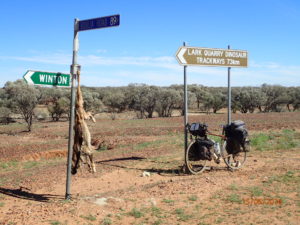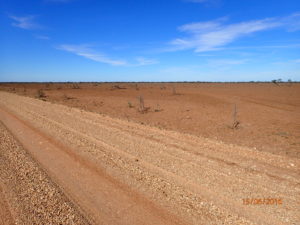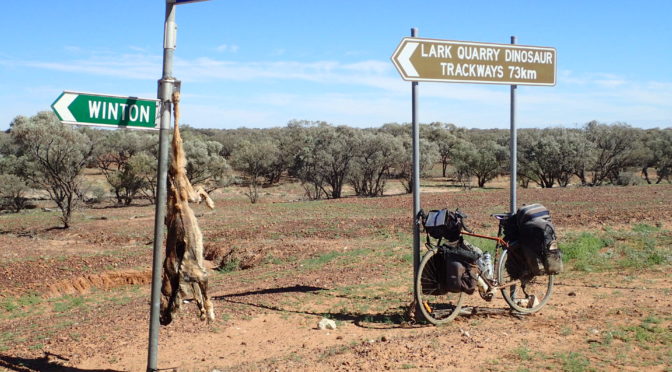Mud holes and headwinds for the first 50 km from Brighton Downs to Old Cork turnoff. Slow grinding work riding a bit, getting off the bike and push it around the bog hole, back on the bike and 500 m later, repeat. It got better but was still slow and laborious.
This has to be some of the most monotonous country of the trip. The road is in the flood plain of the Diamantina River; that is it is through a succession of 2-5 km wide nearly bare white clay pans separated by 1 km gibber stone ridges, and repeat, and repeat, and repeat! I can see why Henry Lawson recommended suiciding now to save having to suffer through long stretches of this country before suiciding later.

At Old Cork the choice was between two older mail roads which run to Boulia or to Winton but are likely to be difficult for a bike due to wet conditions and black soil (again, a friendly local electrician gently suggested that these roads were ‘not a good idea’). The only viable route was to continue on the current Cork Station mail road and the dinosaur footprints at Lark Quarry.
The Winton area has been in a major drought for years. This is what a major drought looks like;

A friendly road crew who had just finished building a culvert over the creek at Old Cork drove past and advised on some local dams that would be good places to camp for the night – they would even mark the turn-offs for me. Alas, I missed there marks in the failing light and finished the day on a creek half way between Cork Station and Lark Quarry.
The camp was amongst gidgee trees. These hardy acacias stink when flowering (was that you?) but are a fantastic campfire fuel as they burn cleanly and leave hot burning coals for making damper and other campfire cooking.

